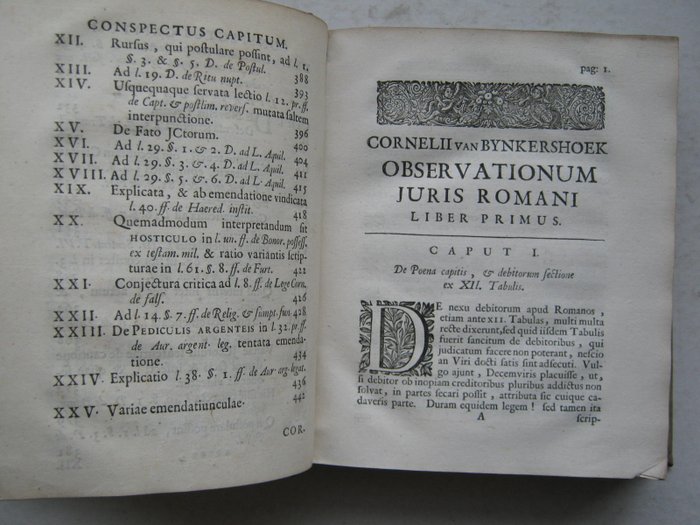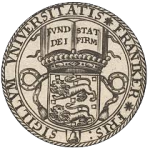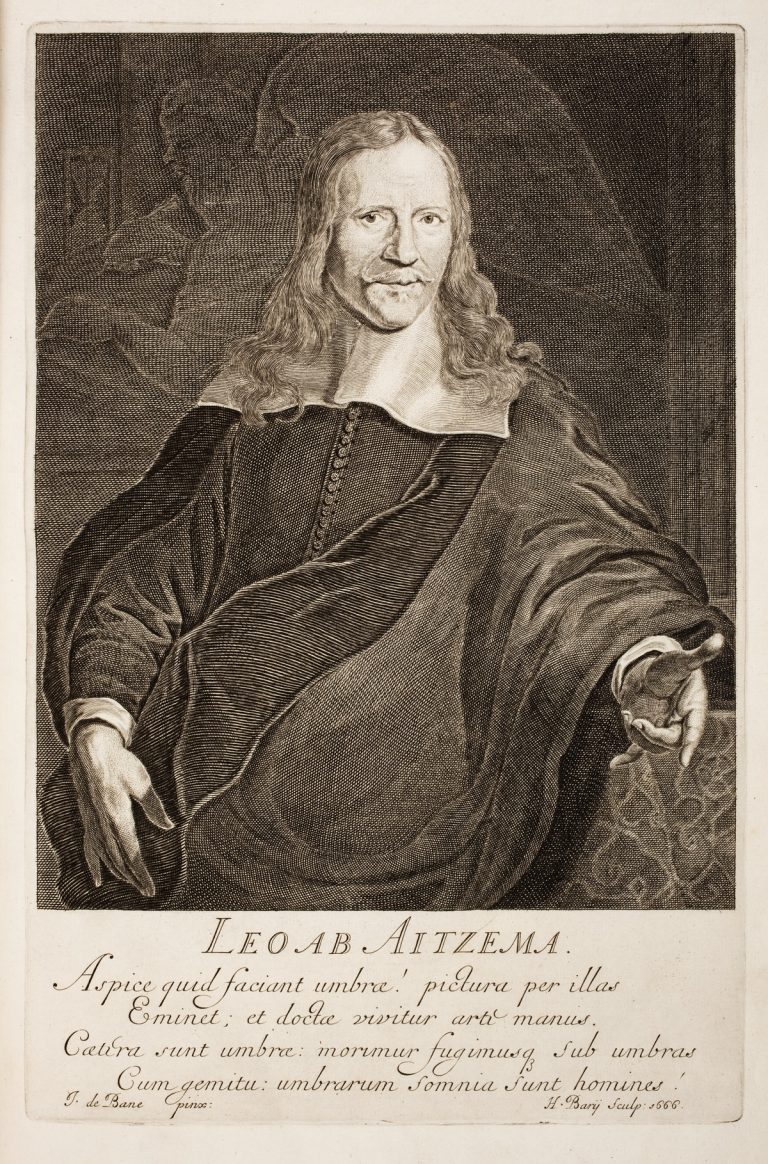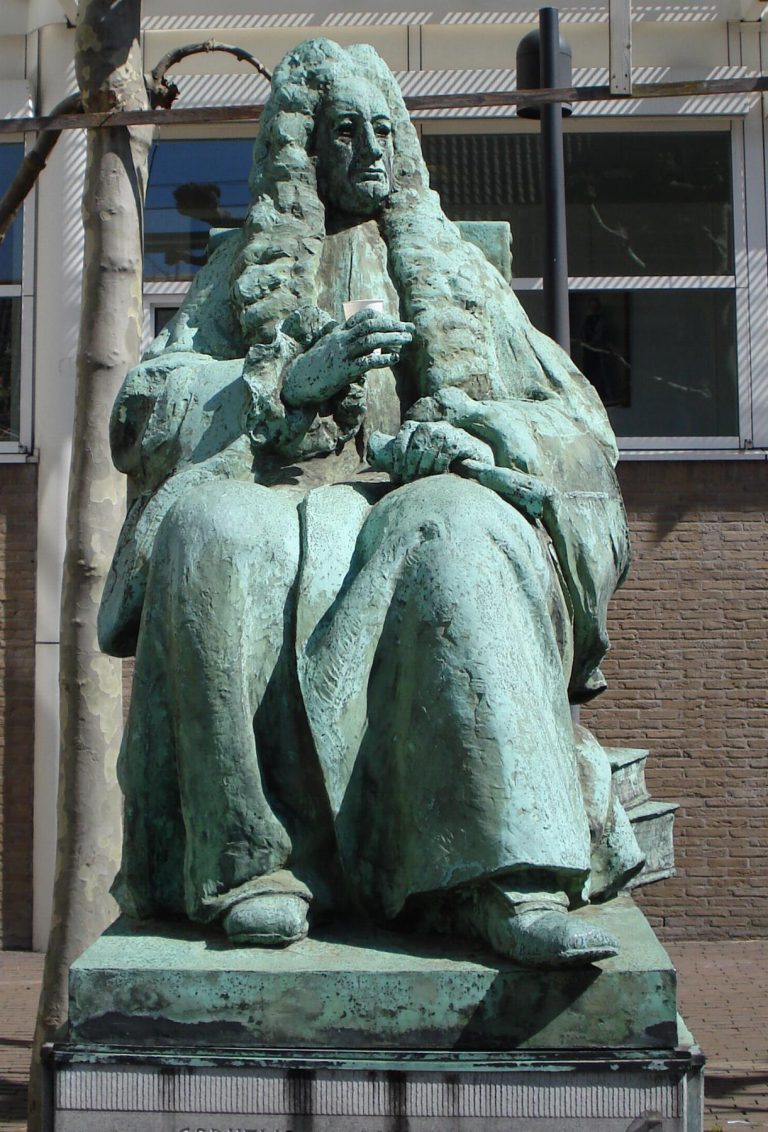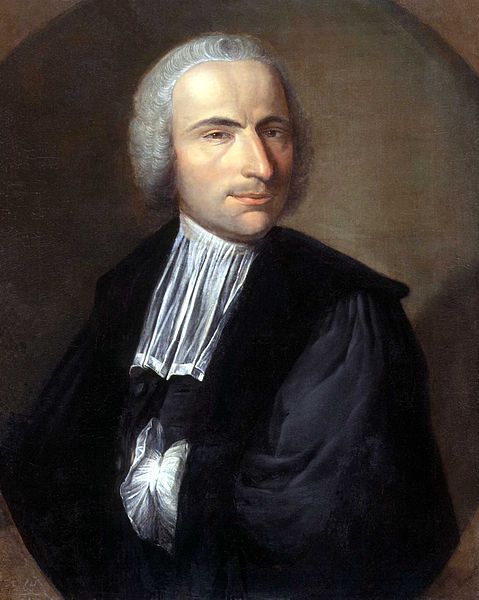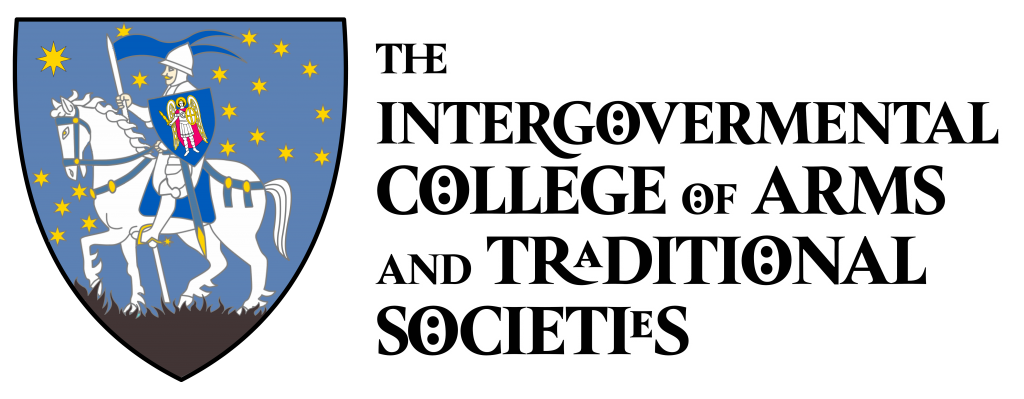Cornelis van Bynkershoek, (born May 29, 1673, Middelburg, Zeeland, Neth.—died April 16, 1743, The Hague), Dutch jurist who helped develop international law along positivist lines.
Bynkershoek studied law at Franeker University and was admitted to the bar at The Hague. He was a member (1703) then president (172) of the Supreme Court (Hoge Raad) of Holland and Zealand – (two of the seven United Provinces).
Although engaged in a demanding judicial career, he found time to produce a large and varied number of works of legal scholarship.
Bynkershoek’s principal works in international law are De Dominio Maris (1703; “On the Dominion of the Sea”), De Foro Legatorum (1721; “On the Forum of Legates”), and Quaestiones Juris Publici (1737; “Questions of Public Law”). His opinions on such questions as the sovereignty of the seas, the position of ambassadors, private property in wartime, prizes, neutrality, contraband, and blockade have been highly regarded and influential. In ascertaining the law of nations, he placed greater emphasis than did his predecessors on actual usage, rather than on deduced precepts.
